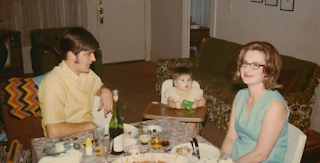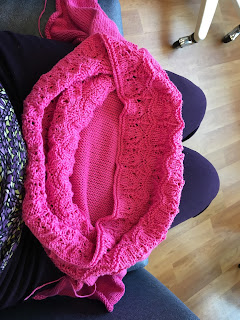This post will have LOTS of medical info (for me to refer back to) and will include a tentative timeline. Not exciting reading, but a plan, and having a plan puts me in my comfort zone.
First off, all of my pre-transplant tests are good. That includes an echocardiogram, EKG, CT scans of my chest and head, a pulmonary function test, and tons of blood tests including CBC, blood chemistry, communicable diseases, immunity, and a pregnancy test. My white blood cell counts continue to drop, while my hemoglobin and platelets are increasing, though nothing is in the normal range right now. I've had a social work consult, a psychological consult, a pharmacy consult and signed my name to at least a dozen pieces of paper indicating that I understand the risks of this procedure and the medications I'll be given and that I give permission for storage and research on any of my tissues that are not used for my treatment and would otherwise be discarded. All that remains is a COVID-19 test, which will not be done until the morning of admission.
I have learned that my donor is a 22 year old woman from somewhere in the US, and that she donated earlier this week and her stem cells are currently cryogenically preserved at Froedtert, waiting for my body to be ready to receive them. (That gives me chills every time I think about it.) I had to sign an extra paper because my donor received a tattoo in the 12 months prior to her donation and the FDA requires that disclosure (although she's been tested for known blood borne diseases and there's really no concern from my medical team). Her blood type is O+, which means that when the transplant takes, I will also be O+. (Makes sense, but I hadn't thought about that!) I will continue to receive A+ until I convert at about 1 month. Then when there are signs of conversion, I get O- until I'm completely O+. (So donors, keep that in mind! LOL)
Dr. Hamadani explained that my myeloablative chemo is "intense" but that it's the best choice for my situation, and given that I am "very fit."
From the information provided by my transplant coordinator, the "schedule" and what I should expect will look something like this--although, as always, everyone responds somewhat differently:
Day -6 (negative six; 4/29/20): if COVID-19 test is negative, I'll receive a shiny new PICC line, be admitted to the hospital, and have my first chemo (Fludarabine).
Day -5 (4/30) through Day -2 (5/3): Two chemos--Fludarabine and Busulfan; Busulfan causes mouth sores, a sore throat, and GI distress. I'll be sucking on ice and/or popsicles for hours each day during and for half an hour after each Busulfan infusion. I'll likely lose my appetite again, but not feel horrible.
Day -1 (5/4): Start anti-rejection drug tacrolimus; this drug requires frequent blood tests and titration of doses. It will be IV while I'm in the hospital, then transitioning to oral.
Day 0 (5/5): Transplant Day--happy re-birthday to me!
Days 1 to 7: additional anti-rejection med--Methotrexate--on days 1, 3, 6 and again on 11; This should be my easiest week, as the chemo impact is delayed. I'm supposed to hang out, exercise, and rest up. May start the decline and need transfusions by the end of the week
Days 8 to 14: This is projected to be the roughest part. My own WBC will go down to nothing and it will take until about the end of the week for the donor's immune system to start producing and begin the upward climb. Because my body will be sorting out the two immune system thing, I'll spike fevers--which is a good thing. Unfortunately, we don't know for sure that any fever is just the immune system change-over, so staff will have to rule out another source of infection. So it'll likely be a week of pokes for blood draws, X-rays, CT scans, vitals checks, etc. I'm told to expect extreme fatigue and a lot of blood transfusions.
Days 15-21+: This will be the gradual recovery and hopefully my new immune system will build to allow me to go home sometime after day 21 (5/26). I will still need transfusions--but hopefully fewer of them. Day 21 is the earliest I will be able to head home. I know others who have had transplants that have been hospitalized much longer--even over 100 days.
When I'm home, I'll have to go in twice a week to see Dr. Hamadani and have labs drawn. I will likely still need some transfusions, but hopefully less frequently.
Med-wise, I'll be on:
Tacrolimus (anti-rejection) for at least 6 months
Acyclovir (anti-viral) probably for life
Levofloxacin (antibiotic) until my counts rebound
Fluconazole (anti-fungal) or possibly back on voriconazole (anti-fungal) for 3-6 months, depending on counts
Bactrim (antibiotic) starting on day 30 for at least 6 months (protects agains a common opportunistic pneumonia)
Ursodiol to protect my liver from all the stuff given to me surrounding the transplant
Venetoclax (chemo) possibly even after the transplant since I still had blasts present at transplant
I'll need to avoid the sun while on most of those meds, so I may be enjoying this summer from my kitchen patio door!
The first 100 days post-transplant is especially restrictive. This is the window in which the most critical side effects (including infections and acute graft vs. host disease) will likely occur, and after which the new stem cells are most likely engrafted and making new blood cells. I will not be able to go out to eat, will be on all those meds above
The first 100 days post-transplant is especially restrictive. This is the window in which the most critical side effects (including infections and acute graft vs. host disease) will likely occur, and after which the new stem cells are most likely engrafted and making new blood cells. I will not be able to go out to eat, will be on all those meds above
I cannot travel for a year (although with COVID-19 I probably wouldn't anyway), and I will need to continue living pretty much like I have been for the last 5 months--and how you all have been since COVID-19--for that year. If my counts rebound and I'm off the immunosuppressants and anti-rejections, I can start to be re-vaccinated after 6 months, but some won't be possible until a year.
It's a lot. I spent 21 days in a row at St. Luke's and I had several visitors every day. Visitors are not allowed in the hospital now because of COVID-19. I am happy that I've been able to connect with so many people via Zoom, and I will continue to do that through my stay. I can't even think about how hard it will be to not be able to be with Greg at all. Obviously I'll be face timing and texting and Zooming with him every day. He will be able to pick up and drop off things for me--leaving them with a nurse from my unit. But that's it. Which is bizarre. I need to keep my eyes on the prize, and the only way to ever possibly resume a normal life at all is to make it through the next month, then 100 days, then 6 months, then year. I’ve been waiting for this chance for almost five months. It's time to do this.














